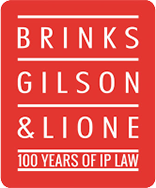|
On March 21, 2018, the United States Court of Appeals for the Ninth Circuit issued its decision in the highly publicized copyright suit, Pharrell Williams, et. al., v. Frankie Christian Gaye, et. al, No. 15-56880 (Slip Op.; Dkt. 93-1) (Mar. 21, 2018 9th Cir.) (“Williams”). Given the lower court’s controversial holding in favor of the copyright holders, many expected the Ninth Circuit, a highly influential court on copyright matters, to take the opportunity to address some of the important substantive questions raised by this case, providing guidance to the lower courts regarding the scope of copyright protection properly afforded to such musical works. More specifically, many legal practitioners and industry onlookers alike believed that the court had allowed the Gayes to use copyright law to claim exclusive rights to a musical style or “groove”. They hoped the Ninth Circuit might bring clarity as to whether and when a new composition, inspired by an iconic sound, within the same genre, crosses the line from an inspired work to infringement of the original work. Instead, while serving as a cautionary tale as to the importance of preserving the record for appeal, the majority’s decision in Williams provides little by way of substantive guidance on the novel copyright issues raised in the case. In a split decision, a divided Ninth Circuit panel largely affirmed the decision below, “on narrow grounds”, relying on procedural limitations and appellate deference and refusing to disturb the findings of fact, credibility determinations and the discretionary rulings made at trial. Procedural Posture Interestingly, this copyright infringement case was not initiated by the copyright holder but, instead, by the alleged infringers, international pop stars, Robin Thicke and Pharrell Williams (the “Thicke Parties”). Following a royalty demand by the copyright holders, benefactors of the late Marvin Gaye’s music catalog (the “Gaye Parties”), the accused infringers filed a declaratory judgment action in the District Court for the Northern District of California seeking a declaration from the court that their musical work, the 2013 chart-topping song “Blurred Lines,” did not infringe upon Marvin Gaye’s copyright in his 1977 classic hit, “Got To Give It Up.” As is often the case, the copyright holders responded to the Thick Parties’ complaint by asserting counterclaims of their own, alleging copyright infringement against the Thick Parties as well as third parties More Water From Nazareth Publishing, Inc., Star Trak Entertainment, Interscope Records, UMG Recordings, Inc., and Universal Music Distribution, who they claimed also bore responsibility for the infringement as publishers and distributors of the allegedly infringing work. Moreover, the Gaye Parties asserted a claim of vicarious infringement against vocal artist, Clifford Harris, Jr. (“Harris”), for his contribution of a rap verse written for and later included in the allegedly infringing work. Significantly, Marvin Gaye composed “Got To Give It Up” prior to January 1, 1978, the effective date of the Copyright Act of 1976. Thus, the district court was required to consider his compositional copyright under the Copyright Act of 1909. Applying the 1909 Act, the court determined that the sheet music deposited with the Copyright Office, and not the sound recording of Marvin Gaye’s song, established the scope of protection afforded under the Act and instructed the jury accordingly. Following a seven-day trial on the merits in district court, which included extensive testimony from both musicologists and damages experts, a jury found that the Thicke Parties’ 2013 chart-topping song “Blurred Lines,” infringed the copyright in Marvin Gaye’s 1977 classic hit, “Got To Give It Up.” The Jury found Harris not liable for vicarious infringement. Following trial, the Thicke Parties moved for judgment as a matter of law or, in the alternative, a new trial. Additionally, the Thicke Parties sought remittitur of the damages award and apportionment of costs awarded by the jury. The Gaye Parties appealed the finding in favor of Harris on vicarious liability. The district court denied the motions for judgment as a matter of law and for a new trial but remitted the damages award and costs awarded to the Gaye Parties. The court also reversed the jury’s holding as to Harris, finding him liable for vicarious infringement. The Parties cross-appealed to the Ninth Circuit. The Majority DecisionThe majority in Williams grounded its affirmance of the trial court’s holding on five main issues: First, because the litigants each failed to file a motion for judgment as a matter of law pursuant to Fed.R.Civ.P. 50(a), and were thus precluded from filing a renewed judgment as a matter of law under Fed.R.Civ.P. 50(b), the parties failed to preserve their right to appeal. Second, notwithstanding their failure to file motions under Rule 50(a) & (b), in the alternative, the Thicke Parties sought to challenge the lower court’s denial of their motion for summary judgment, averring that the district court erred as a matter of law in its application of the extrinsic test for substantial similarity. Citing the U.S. Supreme Court’s holding in Ortiz v. Jordan, 562 U.S. 180 (2011)—which held an order denying summary judgment is not reviewable following a full jury trial on the merits—the Ninth Circuit declined review of the district court’s denial. The majority held that even were it to apply its own precedent—allowing for a narrow exception to the general rule against such review “where the district court made an error of law that, if not made, would have required the court to grant the motion”—the instant case did not present issues of a “purely legal” nature “capable of resolution with reference only to undisputed facts.” Instead, the majority held, the district court’s inquiry in applying the extrinsic test of similarity was “factbound” and “far afield” from cases it has considered under its exception, now defunct, to the general rule against reconsideration of summary judgment orders following a trial on the merits. Third, the Thicke Parties appealed on the basis that the district court abused its discretion in denying a new trial because it erred in allowing two faulty jury instructions crucial to the finding of copyright infringement, improperly admitted expert testimony, and because the verdict was against the clear weight of evidence. Jury instruction number forty-two made clear that a finding of copying does not require deliberate or intentional copying but, instead, “[i]t is sufficient if you find that the [alleged infringers] . . . subconsciously copied either or both of the Gaye Parties’ songs.” Instruction forty-three required the Gayes to show that the two songs are both intrinsically and extrinsically substantially similar but expressly stated the jury need not find every element similar in order to find the two works are substantial similarity. Extrinsic similarity is measured by external, objective criteria while intrinsic similarity is measured through internal, subjective criteria and normally left to the province of the fact finder. The Thicke Parties argued that the court’s instruction to the jury was improper because it allowed the jury to place undue weight on Williams’ and Thicke’s admission that they had been inspired by Marvin Gaye’s “Got To Give It Up” in writing “Blurred Lines.” Noting that direct evidence of copying is rare, the Court explained that copying is usually proven through circumstantial evidence of access coupled with substantial similarity. Under the Ninth Circuit’s “Inverse Ratio Rule,” a sliding scale is applied wherein the stronger the showing of access to a work, the lesser the showing of substantially similarity required. There is no requirement for scienter in copying. Accordingly, because the jury was properly instructed as to the requirement that both access and substantial similarity be proven in this and other jury instructions, the majority found that the district court did not abuse its discretion in refusing a new trial. Likewise, the Court held that it was proper for the jury to be instructed that it need not find all of the musical elements identified by the Gaye Parties’ expert witnesses to find infringement. Instead, the jury need only find that there was “enough similarity between [the works as a whole] . . . to comprise a substantial amount.” Fourth, in a related argument, the Thicke Parties argued that in applying the Copyright Act of 1909, the trial court erred by improperly admitting expert testimony outside of the scope of the deposit copy. Their chief arguments were that the court failed in performing its gatekeeper role by improperly allowing prejudicial testimony from the Gaye Parties’ musicologist experts relating to unprotectable elements of Marvin Gaye’s work. The Ninth Circuit disagreed. It found that the trial court properly excluded elements indisputably present only in the sound recordings, and properly allowed the experts to present their competing interpretations of sound recordings containing only what each asserted was included in the sheet music for both “Got To Give It Up” and “Blurred Lines.” It also held that mash-ups presented by the Gaye Parties’ expert, which superimposed the vocal tracks of each musical work onto the harmonies and melodies of the competing works, was proper for the purpose of illustrating structural similarity and the compatibility of the songs’ harmonies and melodies at the sectional and phrasing levels. The Court cited to numerous cases decided under the 1909 Act wherein recordings were considered in determining copyright infringement. Ultimately, it held, “[t]he question of which expert to believe was properly confided to the jury.” Such credibility determinations and factual inquiries, it reasoned, shall not be revisited on appeal absent an abuse of discretion. Fifth, making its determination on narrow procedural grounds, the Ninth Circuit rejected the Thicke Parties’ argument that the verdict was against the clear weight of the evidence. It held that “so long as there was some reasonable basis for the jury’s verdict . . . [w]here the basis of a Rule 59 ruling is that the verdict is not against the weight of the evidence, the district court’s denial of a Rule 59 motion is virtually unassailable . . . unless there is an absolute absence of evidence to support the jury’s verdict.” The Court went on to state that, under its jurisprudence, this rule has historically be strictly applied given the highly fact-specific determinations made by a jury in applying the intrinsic test for substantial similarity. Moreover, the court found, given the experts’ testimony regarding multiple other areas of extrinsic similarity, not complained of by the Thicke Parties in their appeal, it cannot be said that the verdict was against the clear weight of the evidence. Finally, the Court found that the jury’s award of damages was entitled to “great deference” and should be upheld “unless it is clearly not supported by the evidence or only based on speculation or guesswork.” Accordingly, under the clear error standard of review, the Ninth Circuit upheld the district court’s award of 50% of the publisher’s revenues for “Blurred Lines” ($3,188,527, remitted from the jury’s original award of $4,000,000), 40% of Williams’ and Thicke’s non-publishing profits (totaling $2,125,822, remitted from the jury’s original award of approximately $3.4 million) and a running royalty of 50% of future profits. The Court did, however, reverse the district court’s holding on a single issue. It held that the district court erred in overturning the jury’s holding of no vicarious liability as to Harris. First, it found reversal of the jury’s finding was improper because the Gaye Parties’ appeal suffered from the same procedural challenge. That is, they waived their right to challenge the verdict when they failed to file 50(a) and (b) motions for judgement as a matter of law and also failed to object to the allegedly inconsistent verdict prior to the dismissal of the jury. Second, even if this procedural requirement were met, the Court held, Harris, who wrote a rap verse which appears in “Blurred Lines” in approximately the same place as the parlando in “Got To Give It Up” was entitled to reversal on appeal because, as the jury originally found, the Gaye Parties’ failed to present any evidence supporting a finding of vicarious liability. The Court also rejected the Gaye Parties’ appeals relating to the district court’s refusal to award it attorney’s fees and the trial court’s apportionment of costs. The Dissent
|
|
|
|
|
|




 />i
/>i

